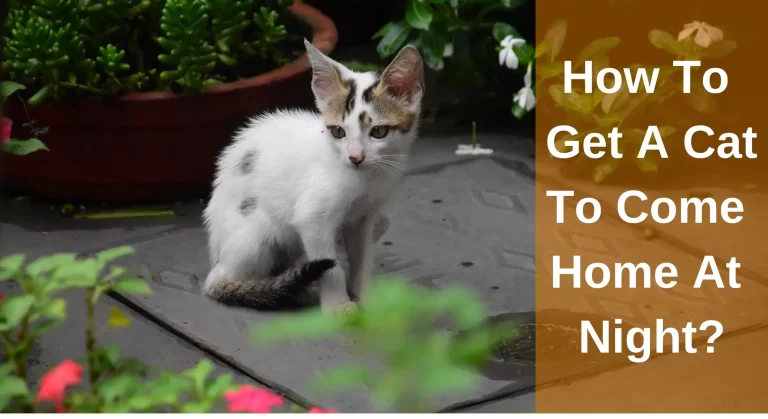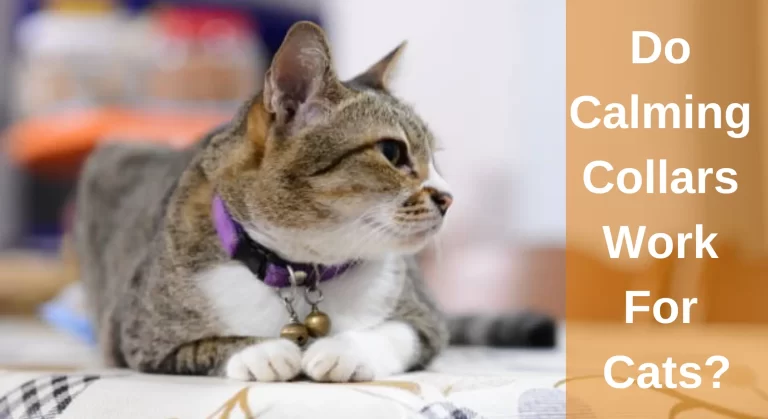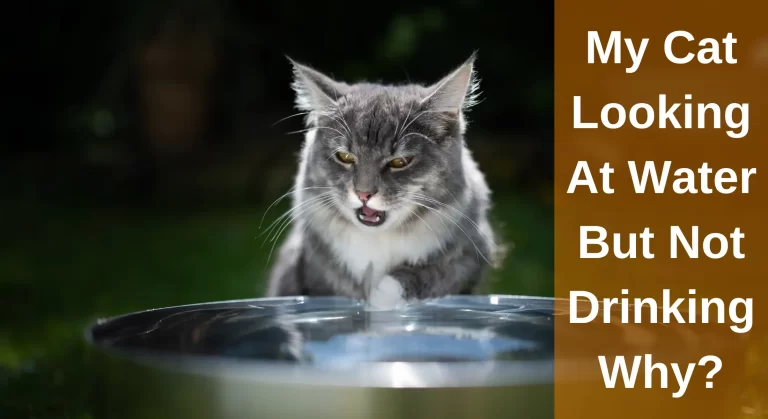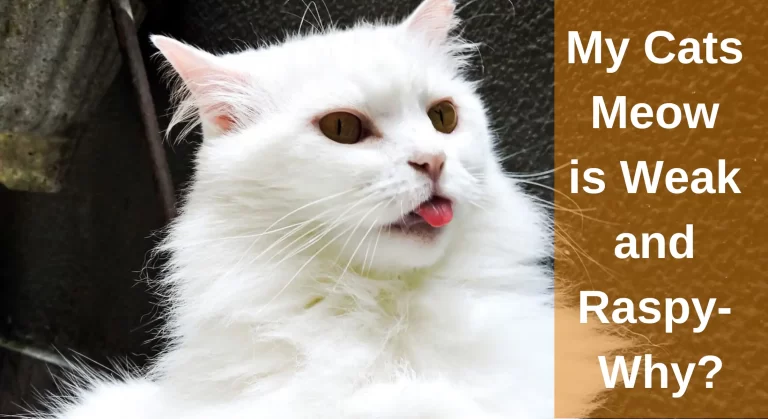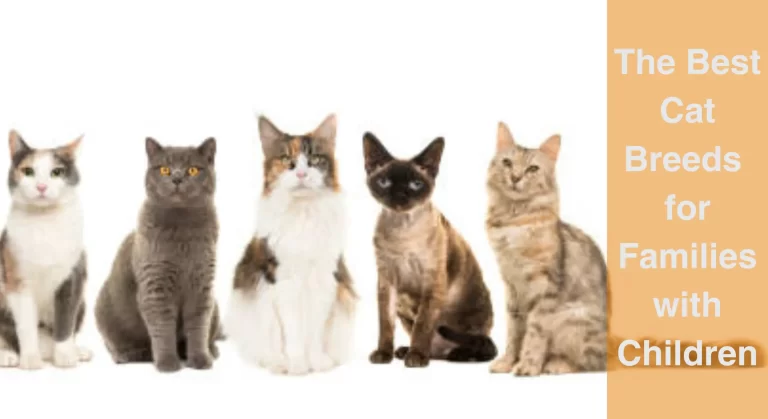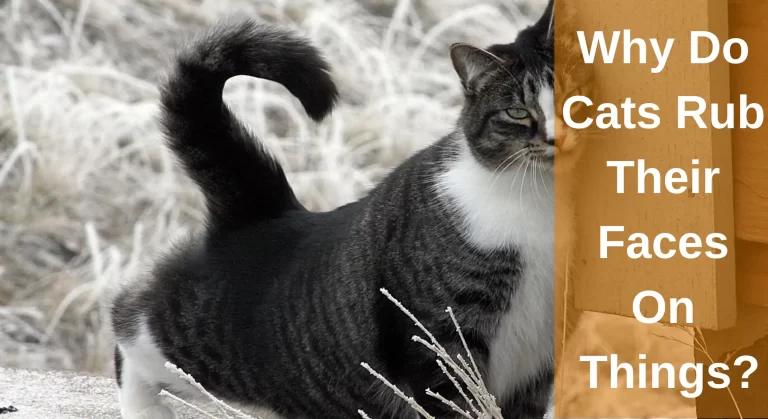Do Cats Get More Affectionate With Age? All You Need To Know
Like human beings, cats also grow older and transform. If you’ve observed that the cat’s behavior has changed unexpectedly as it transformed from just a little kitten to a full adult cat, it’s perfectly normal. Most cat owners believe that as the cat gets older, it becomes more affectionate. It is a typical stage of development; as they grow older, their attitude continues to evolve. Do Cats Get More Affectionate With Age?
Whether cats get more affectionate with age varies from cat to cat. While some cats may become more affectionate as they grow older, particularly during their senior years, it’s not a universal rule. Individual personality, life experiences, and external factors play significant roles in a cat’s level of affection. Some senior cats may indeed become more affectionate, while others maintain their existing behavior patterns.
Let’s explore whether older cats grow more friendly and how age affects cat behavior. We also consider potential explanations for why cats suddenly become more affectionate.
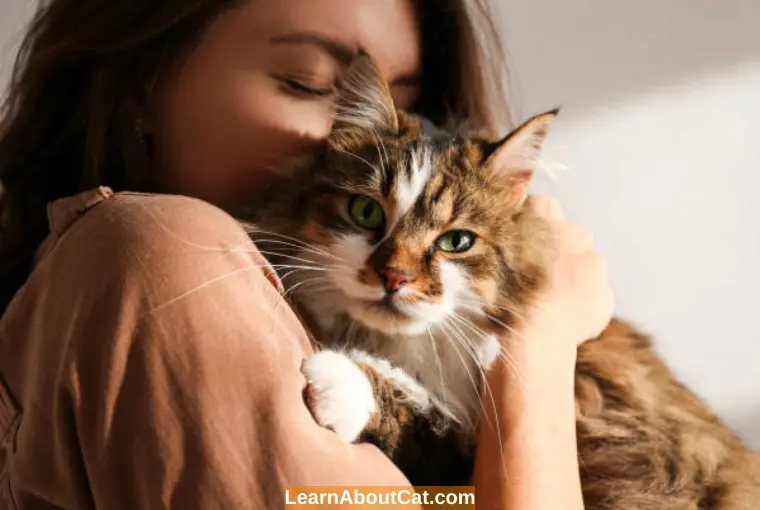
Do Cats Become More Affectionate With Age?
When a pet cat develops physically and psychologically, its behavior may alter. Not every cat becomes more friendly as they grow, though some do. While trying to comprehend alterations in a pet cat’s behavior, there are many factors to take into account, including character, mental health, race, habitat, and much more. In fact, it is impossible to predict if the cat will become more friendly as she ages during her early development.
Cats become more affectionate with their masters as they age, though this depends on several different circumstances. It’s crucial to realize that cats are subtly affectionate. It might just bling at you gently or lift its tail without any fuss. Such subtle physical cues demonstrate its love for you.
Like people, cats, too, become more settled when they age. They became more comfortable and less active. They alter in every aspect, including where they rest, the noises they make, and how long they sleep. Cat owners claim that while their pets become older, they become more affectionate.
Older kittens exhibit attachment, admiration, and love towards their masters, while younger ones remain engaged in learning, discovering, and enjoying. Adult cats have developed routines that include getting attention and care.
Do Kittens Get More Affectionate as They Get Older? At What Age Will My Kitten Become More Affectionate?
Most kittens/cats start showing their affectionate behavior at the age of 1 or 2 years. Some will just come up towards you and leap on your arms, whereas others might just become more self-reliant and want occasional cuddles.
Since each cat is unique, as was already explained, this entirely relies on the temperament and species of the cat.
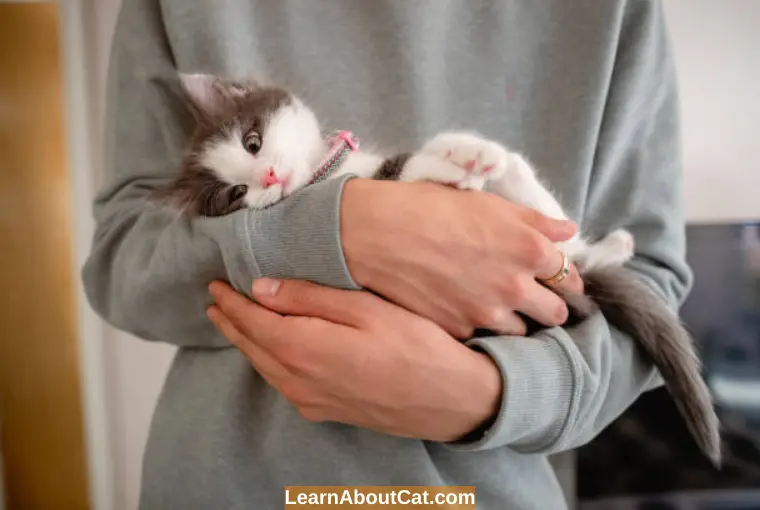
A cat usually achieves adulthood at the age of one, when its entrenched patterns begin to establish hold.
Cats don’t really alter much as they get older; their permanent character doesn’t really emerge until they’re two years old.
How to Tell That Your Cat Has Become More Affectionate?
Your cat may be showing you affection by cuddling, resting on your chest or next to you, occasionally creeping up there, giving you a direct gaze, or even chasing you.
Cats typically brush up with their owners or snuggle them to show their affection. Your cat expresses its love for you whenever it sees them gazing at you and making a gentle blinking motion, mostly in the morning.
One other sign that they feel comfortable and secure with you is when they climb up to your chest and sit or lie there. A cat’s preference to occasionally sleep alongside you is a sign of her love for you.
Interesting Reading: Why Does My Cat Lick My Face?
What Cats Do at Different Ages – Cat Behaviour by Age A Complete Guide
You could be unsure as to whether the young kitten you got will remain distant forever or develop into an experienced pet with time. There are several behavioral alterations you should watch for in your pet as it matures, even if each cat is different in its own way. Mature cats are peaceful and relaxed, in contrast to kittens, who are like little balls of excitement and devastation.
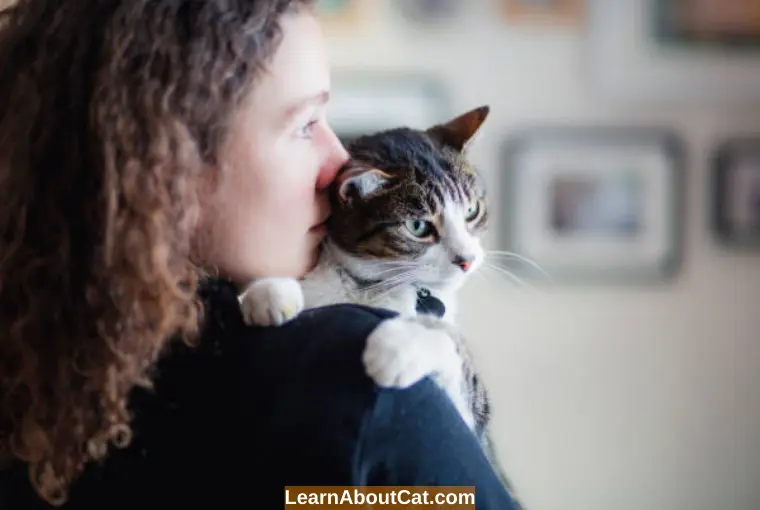
Below are a few observations about how the cat’s attitude would alter as it got older.
- 0 to 6 months – The kitten that is learning everything there is to learn about the universe. It constantly appears to be playing and has a lot going on.
- 6 to 12 months – The cat is energetic at this stage, comparable to adolescence in humans. It tries to establish its dominance over anyone and everything.
- 1 to 2 years – Your cat reaches adulthood around this time and begins to develop many of her habits. Although it begins to quiet down somewhat, it is still very energetic. At this stage, owners must handle the pet carefully because any undesirable behavior can soon become ingrained. Playing and interacting well with cats helps strengthen the bond.
- 7 to 10 years – The cat has reached middle age but is still energetically depleted. Your cat begins to develop a routine. It might be more tolerant of modifications and display greater love than before the relationship.
- 11 to 14 years – The pet is a senior citizen around this period and will begin to exhibit a loss of happiness and good health. Its hearing, eyesight, and cognitive abilities will all deteriorate.
- 15+ years – Geriatric cats are those who are 15 years or older and require extra care and love. At this time, you should anticipate numerous trips to the veterinarian as well as a lot of sleeping and laziness.
At what age do cats develop their personality?
Cats begin to develop their personalities during their kittenhood, but their personalities become more established as they grow. By the time a cat reaches early adulthood, typically between one and two years of age, their distinct personality traits, such as being playful, aloof, or affectionate, become more apparent.
However, it’s essential to note that individual cats can continue to develop and change throughout their lives based on their experiences and environment.
Why Is My Cat More Affectionate Than Usual?
The cat could be suddenly getting affectionate for various reasons, including anxiety, illness, desperation for attention, physical ailments, or other factors. Sometimes, though, it might just be done for attention.
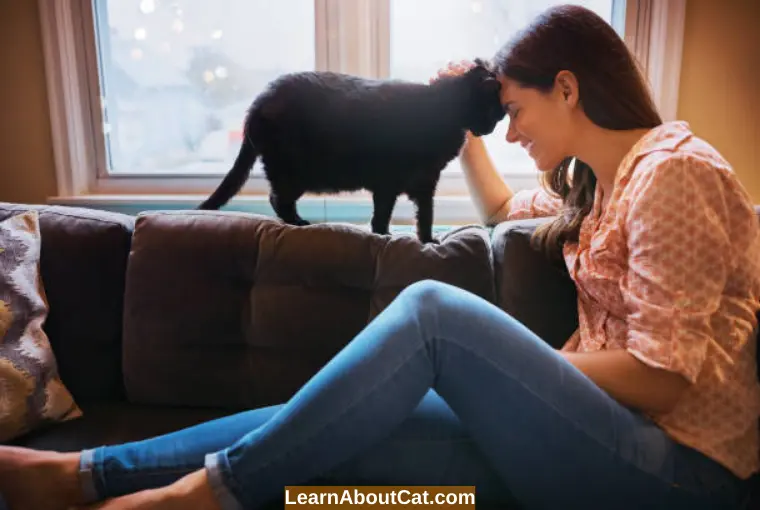
If your normally affectionate cat immediately begins jumping into the lap or hugging you, as well as other changes in behavior like tiredness, a change in interest in food, losing weight, refusing to use the litter box, etc.
This might be an indication of tension, anxiety, discomfort, illness, or even a serious medical issue. If your feline friend is facing this issue, then in this condition, it requires transportation to a clinic for proper treatment.
Reasons Why Old Cat Suddenly Affectionate And Clingy?
Many cat owners wonder why their elderly cat is suddenly loving. Some people think clinging cats are arrogant or needy. She may have had a lot of attention when she was a kitten, and as a result, she has grown accustomed to getting her own way. Your elderly cat may become clinging for various reasons, including this, but it’s not the only cause.
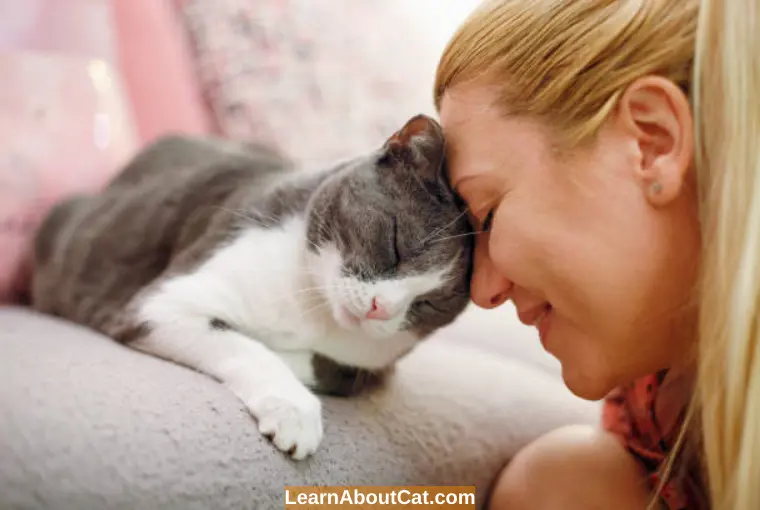
Below you’ll see a few possible reasons that will give you the answer to why your cat is getting older and becoming clingier and more loyal.
- The cat becomes more frightened and tense when the routine or surroundings are abruptly changed.
- It’s possible that you and the cat have grown unhealthily bonded.
- Your pet could demand more attention than it now receives.
- It could have been upset by another new family moving in or by someone disturbing her routines.
- The feline could be ill or pregnant.
Do Male Cats Get More Affectionate as They Grow Older?
Your cat’s gender does not impact whether it is friendly or old. If you think that as a male ages, he will begin to show increased affection toward as compared to a female cat, then you might be wrong. Contrarily, most cat owners claim that as their males age, they become more self-reliant, proving that gender is not a determinant in cat affection.
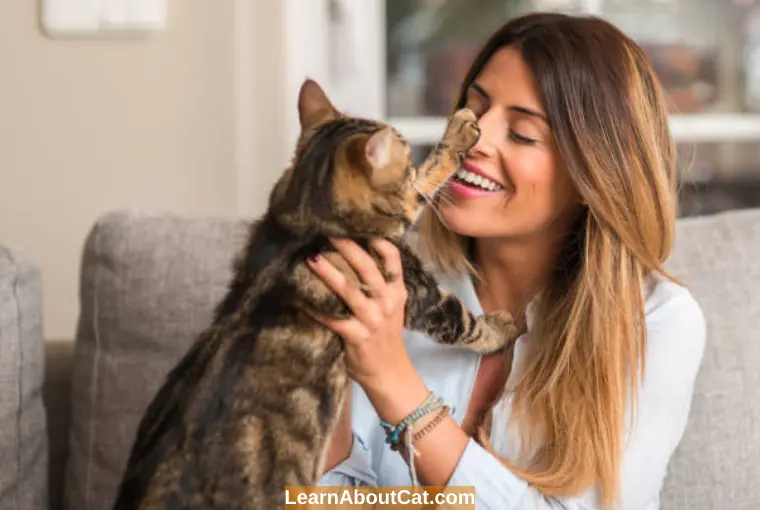
Your cat’s temperament and breed will decide the extent to which she gets cuddlier as she gets older. Siamese, Birman, Persian, and other breeds of cats are more devoted to their masters as they get older.
How to Pick a Cuddly Kitten?
If you wish to be certain to acquire a friendly cat, you might consider the type of cat you obtain and the temperament of the kitten.
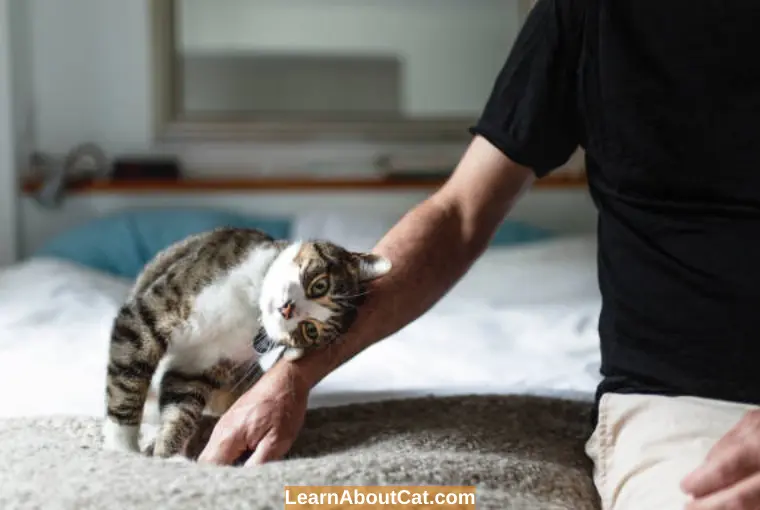
- When you visit the kittens, spend some time getting to know them instead of solely focusing on the prettiest face.
- It is a good indication that you’ll connect properly in the upcoming time if it approaches you without hesitation to inspect you and garner attention.
What signs should I look for to know if my senior cat needs more affection?
Signs that your senior cat may need more affection include increased vocalization, changes in eating or grooming habits, or seeking more attention from you. Keep an eye on their behavior for any deviations from the norm.
Frequently Asked Question
Does Neutering Make A Cat More Affectionate?
Neutered cats are simpler to interact with. They are more likely to be gentle and loving. Male cats who have undergone neutering typically travel less and engage in very few animal conflicts.
Do Male Cats Become More Affectionate After Neutering?
It’s observed by most cat owners that male cats get highly affectionate after neutering treatment. However, having your cat spayed or neutered does not affect its personality. This only lowers hormone levels and restricts the associated behaviors.
What age are cats the least cuddly?
Cats are typically least cuddly during their adolescent phase, which can occur between six months and two years of age. During this period, they often exhibit increased independence and may be less inclined to snuggle or seek constant attention.
What are the 4 signs your cat is suffering?
Four common signs that your cat may be suffering include:
1. Changes in eating or drinking habits.
2. Lethargy or decreased activity.
3. Hiding or isolating themselves.
4. Vocalization or unusual behavior.
If you notice any of these signs, it’s crucial to consult with a veterinarian to determine the cause of your cat’s distress and provide appropriate care.
Can cats sense sadness?
Cats are known to be perceptive to human emotions, and they can often sense changes in your mood or demeanor. While they may not fully understand the concept of sadness, they can pick up on your body language, tone of voice, and behavior, which may lead to changes in their own behavior to offer comfort or companionship.
Conclusion
In conclusion, the question of whether cats become more affectionate with age is nuanced. While age can influence a cat’s behavior, it’s not the sole determinant. Various factors, including individual personality, health, environment, and life experiences, play a crucial role in shaping a cat’s level of affection. Senior cats may exhibit increased affection, but it’s not a guarantee.
However, if an autonomous cat tries to attach itself to you immediately or climb onto your body, this could indicate a health problem or be an attempt to attract your interest. Bring the cat to the clinic as quickly as you can if you notice that they are unexpectedly demanding attention.
What remains constant is the importance of understanding and meeting the evolving needs of our feline companions, ensuring a rewarding and affectionate bond throughout their lives.
Who is Isabella?
My name is Isabella, and I am a dedicated and knowledgeable cat enthusiast. With years of experience caring for cats and a deep love for felines, I made a mission to help other cat lovers navigate the challenges of cat ownership.

